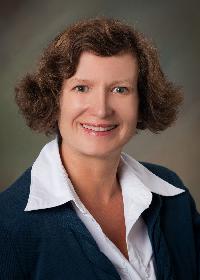| Pages in topic: [1 2] > | Was there English spelling reform in the past? to-day => today etc. ? Thread poster: Olaf (X)
|
|---|
Olaf (X)
Local time: 07:50
English to German
I've been reading a lot of out of copyright books on my iPhone lately and I noticed that in some older books today was written to-day and that numbers from 21-99 were written in the same order as in German. E.g. "two and thirty pounds" or "for five and thirty years".
So I guess at some point in the past a mini spelling reform must have happened and I'm wondering if anybody knows more about this.
Olaf
[Subject edited by staff or moderator 201... See more I've been reading a lot of out of copyright books on my iPhone lately and I noticed that in some older books today was written to-day and that numbers from 21-99 were written in the same order as in German. E.g. "two and thirty pounds" or "for five and thirty years".
So I guess at some point in the past a mini spelling reform must have happened and I'm wondering if anybody knows more about this.
Olaf
[Subject edited by staff or moderator 2010-03-20 10:25 GMT] ▲ Collapse
| | | | John Fossey 
Canada
Local time: 01:50
Member (2008)
French to English
+ ...
| Continuous changes | Mar 20, 2010 |
English is a living language that changes continuously over time. In addition, there are large pockets of local variations in spelling and usage with significant numbers of members. For example, the United States tends to have variants that are different from Britain and, with a population of some 300 million, the US spelling and usage can hardly be called "wrong" just because they are different from what is used in Britain. Although Britain has what is called "the Queen's English", a kind of... See more English is a living language that changes continuously over time. In addition, there are large pockets of local variations in spelling and usage with significant numbers of members. For example, the United States tends to have variants that are different from Britain and, with a population of some 300 million, the US spelling and usage can hardly be called "wrong" just because they are different from what is used in Britain. Although Britain has what is called "the Queen's English", a kind of standardized English, I'm not sure how relevant it is today.
Certain bodies have a lexical standard for their own use, which you need to know if they are the end user. An example is the Translation Bureau of Canada, which sets English standards for Canadian Government documents. But there is no linguistic standards body that has any recognized authority over the language in general, and dictionary makers are kept busy keeping up with actual usage - there is no "reform" as such.
The spellings and usages you quote are probably from the 1800's or earlier.
Part of the history of English is how it has drawn on many sources and incorporated variants of spelling and usage which eventually become accepted as part of the language, so you end up with many spelling variations for a single phoneme.
[Edited at 2010-03-20 12:20 GMT] ▲ Collapse
| | | | Jeff Allen 
France
Local time: 07:50
Multiplelanguages
+ ...
| Many languages have had spelling reforms | Mar 20, 2010 |
Olaf wrote:
So I guess at some point in the past a mini spelling reform must have happened and I'm wondering if anybody knows more about this.
Olaf,
(sorry this was posted without seeing John's post first)
English has undergone a lot in the way of spelling reforms over the past 1000 years. The Great Vowel Shift at the end of the Middle Ages required some writing reworking.
For a list of my articles related to spelling reforms for various languages and the issues of gaps between speaking and spelling, go to my LinkedIn profile (linkedin.com/in/jeffallen) , go the section at the bottom entitled Files, got to Authoring/Translation > spelling-orthography-issues, and then the articles there.
Also more indepth discussion for other languages in my several co-authored articles published in the LISA newsletter / Globalization insider in 2002 listed in:
https://www.box.net/shared/lcb2qj40ag
As for dates, I recall that it was Lincoln's Gettysburg address in which he stated "Four-score and twenty years ago".
and I have a book of children's bedtime stories in English which I do recall have a number of expressions in older English that could indicate some of the changes over time.
Jeff
[Edited at 2010-03-20 12:21 GMT]
| | | | Olaf (X)
Local time: 07:50
English to German
TOPIC STARTER | Thanks for the comments | Mar 20, 2010 |
John Fossey wrote:
But there is no linguistic standards body that has any recognized authority over the language in general, and dictionary makers are kept busy keeping up with actual usage - there is no "reform" as such.
And yet spellings such to-day, to-morrow etc. have disappeared in all varieties of English. If there was no linguistic standards body, it must have been the publishers who were the driving force behind these changes.
John Fossey wrote:
The spellings and usages you quote are probably from the 1800’s or earlier.
Actually, I found these spellings and usages in books published as late as 1905.
Olaf
| | |
|
|
|
nruddy 
Mexico
Local time: 23:50
German to English
| Still around... | Mar 20, 2010 |
My mother still writes "to-day" and "to-morrow" and she was only born in 1940!
I don't know anyone of my generation who does, though.
| | | | Sheila Wilson 
Spain
Local time: 06:50
Member (2007)
English
+ ...
| Native Speakers Rule, OK? | Mar 20, 2010 |
Olaf wrote:
If there was no linguistic standards body, it must have been the publishers who were the driving force behind these changes.
No, I don't agree. Publishers aren't normally the driving force, not even publishers of dictionaries and grammar books. It's the native English-speaking community that makes most of the changes, then the publishers reflect that change.
However, I believe there was an actual concerted effort in America (was it in the 1920s?) when Mr Webster (of the same dictionary) introduced the simplifications that resulted in the Americans writing color, center, plow, etc. As an EFL trainer, I DO wish we had that last one in British English - any support for starting a movement to simplify the "gh" words in British English?
| | | | | English spelling standards | Mar 20, 2010 |
The first attempt at standardizing English spelling was Samuel Johnson's dictionary published in England in 1755. This was followed by Noah Webster's dictionary published in the US in 1809.
Because the US was a new country, Webster wanted to establish US English with its own separate identity, he changed the spelling of many words. That is why the British and US spellings differ on words such as color-colour, center-centre, etc.
The modern standards are set by the Ox... See more The first attempt at standardizing English spelling was Samuel Johnson's dictionary published in England in 1755. This was followed by Noah Webster's dictionary published in the US in 1809.
Because the US was a new country, Webster wanted to establish US English with its own separate identity, he changed the spelling of many words. That is why the British and US spellings differ on words such as color-colour, center-centre, etc.
The modern standards are set by the Oxford English Dictionary (OED) in Britain. However, in the US there are several dictionaries that claim to be standard.
You might be interested in this:
http://www2.gsu.edu/~wwwesl/egw/jones/differences.htm ▲ Collapse
| | | | Jeff Allen 
France
Local time: 07:50
Multiplelanguages
+ ...
| language decision bodies, language shift, media, etc | Mar 20, 2010 |
Olaf wrote:
If there was no linguistic standards body, it must have been the publishers who were the driving force behind these changes.
Sheila Wilson wrote:
No, I don't agree. Publishers aren't normally the driving force, not even publishers of dictionaries and grammar books. It's the native English-speaking community that makes most of the changes, then the publishers reflect that change.
Exactly. Very good statement Sheila,
The effect of language by media on the language spoken and written by native speakers was one of key points of my doctoral work.
And it is important to distinguish between official publishers and the media industry. The media, as a publisher of daily content, has more driving force than anything, and has a direct connection and influence on the native-speaking community.
See my book review of a great book (originally a Phd thesis improved and then written as a book) on this topic:
Review of Anglicisms Neologisms and Dynamic French. Review by Jeffrey Allen. By Picone Michael D. 1996. (Lingvisticae Investigationes: Supplementa Vol. 18.). In Journal of French Language Studies , Volume 11 , Issue 02 , Sep 2001 , pp 259-300
Olaf, there are only a few languages that really have official language standards bodies. For example for French and for Hebrew, and also for Haitian Creole.
Much is determined by whether a specific language has been declared as an official language of a given country, or if there is just a national language which dominates and is considered to be official (but really isn't), and then if there are states/depts/cantons/regions of a given country which have declared official languages or not (within either of the types of cases above).
Then there are countries that try and set up such language drivers to enforce language acceptance, such as in Spain.
But for English, language change and shift is a very grassroots-driven, bottom > up cycle. And although there is reference to the Queen's English as mentioned John, this is a fallacy with regard to reality.
There is a lot documented on this with regard to World Englishes.
And the journal "Language Problems & Language Planning" by John Benjamins is great reference.
also see the following blurb I saw posted many years ago and is very relevant. Sorry it's in French and without accents marks. and no time to translate it. But a good reality check:
Date: Fri, 12 Jun 1998
Quand une faute de francais est commise par...
0,01 % des gens, c'est une coquille
0,10 % des gens, c'est une distraction
1,00 % des gens, c'est une erreur
10,00 % des gens, c'est un barbarisme neologique
20,00 % des gens, c'est un emploi peu recommandable
40,00 % des gens, c'est d'un registre relache
60,00 % des gens, c'est une exception a la regle
80,00 % des gens, c'est une mode condamnee par l'Academie
100,00 % des gens, c'est l'usage
80,00 % des gens, c'est ecrit dans le dico
60,00 % des gens, c'est une regle (avec des exceptions)
40,00 % des gens, c'est un ringardisme
20,00 % des gens, c'est recommande par l'Academie
10,00 % des gens, c'est d'un charme vieillot
1,00 % des gens, c'est un archaisme
0,10 % des gens, c'est un anachronisme
0,01 % des gens, c'est ecrit dans le dico etymologique
Jeff
| | |
|
|
|
| Book recommendation | Mar 20, 2010 |
Hi Olaf,
You will probably enjoy reading "Accomodating Brocolli in the Cemetary, or why can't Anybody spell?" by Vivian cook. I was just browsing through it yesterday, it has plenty of examples of how and when spellings have changed over the years, and it also compares British and American English. Your local library should have it.
| | | | Olaf (X)
Local time: 07:50
English to German
TOPIC STARTER | Native Speakers Rule, OK? -- not in Germany! | Mar 21, 2010 |
Sheila Wilson wrote:
It’s the native English-speaking community that makes most of the changes, then the publishers reflect that change.
I guess this is more or less the case in most living languages and this is the way most dictionaries are updated. However, in Germany a spelling reform was introduced that was not initiated by the majority of native speakers, but by linguists and politicians.
Sheila Wilson wrote: ... any support for starting a movement to simplify the "gh" words in British English? 
You have my vote and I guess the vote of most EFL students.
nruddy wrote:
My mother still writes "to-day" and "to-morrow" and she was only born in 1940!
Very interesting. I didn't know that these forms are still around.
Jeff Allen wrote:
... also see the following blurb I saw posted many years ago and is very relevant. Sorry it’s in French and without accents marks. and no time to translate it. But a good reality check:
Thanks Jeff, I know enough French to get the gist of it.
Olaf
[Edited at 2010-03-21 00:23 GMT]
| | | | | English Style Guides | Mar 22, 2010 |
While there is no governmental body capable of reforming the various versions of English, there are a handful of dominant style guides and dictionaries.
Most or all of these style guides declare a preference for a specific dictionary and its spellings (= first of two variants or main entry, if two separate entries). For en-US, Webster's New Collegiate Dictionary XI seems to be the most common, although AP Style prefers Webster's New World College Dictionary.
The Chicago Manual... See more While there is no governmental body capable of reforming the various versions of English, there are a handful of dominant style guides and dictionaries.
Most or all of these style guides declare a preference for a specific dictionary and its spellings (= first of two variants or main entry, if two separate entries). For en-US, Webster's New Collegiate Dictionary XI seems to be the most common, although AP Style prefers Webster's New World College Dictionary.
The Chicago Manual of Style XV seems to dominate en-US in general and offers a good basis for most general texts and many specialist texts.
AP Style is the standard for most en-US newspapers.
Beyond that, you need to search in terms of specific branches.
I'd be interested in knowing more about en-GB.
I am familiar with MHRA Style (basically a variant of Oxford Style adapted to produce scholarly manuscripts), Oxford Style, and Times Style for en-GB. The various Oxford dictionaries seem to be firmly established.
I have to admit that Oxford Spelling (-ize instead of -ise) is something of a mystery to me. Apparently, scholarly journals use -ize (but note -yse and a few other exceptions), but the standard for everyday communication and for newspapers is -ise. This is also why MS Word accepts both spellings.
And do some people really write "gaol"? I've seen it before and it's listed as an alternative in the Oxford Dictionary of English III.
I guess this doesn't represent a very grass-rootsy attitude; but, personally I would rather have quick answers to questions about grammar and spelling than the right to play a role in the introduction of the word "grass-rootsy" into standard English usage. ▲ Collapse
| | | |
Actually, I found these spellings and usages in books published as late as 1905.
I am reading a 1946 edition of "Thieves in the Night" by Arthur Koestler, and he both uses "to-day" and "five and twenty" (for 25)
| | |
|
|
|
Sheila Wilson 
Spain
Local time: 06:50
Member (2007)
English
+ ...
| Literary rather than spoken English | Aug 23, 2010 |
JPEsperanca wrote:
I am reading a 1946 edition of "Thieves in the Night" by Arthur Koestler, and he both uses "to-day" and "five and twenty" (for 25)
Those are good examples of the difference between language used in literature and that used in everyday language.
I see no problem with either of the above examples although I would never use either, as I'm not an author. English has changed so much in my lifetime that there are many constructions and a whole lot of vocabulary that I wouldn't use myself. My husband remembers his grandfather using the informal 2nd person for family use (i.e. the equivalent of "you" and "your") and my own father insisted on "may" for permission - I don't teach my students to obey either of these outdated grammar rules. [NB Before you complain, please note that I don't tell my students NOT to use "may" for permission, either]
When I started teaching English 12 years ago, I thought my expensive grammar and course books would last many, many years - they didn't! They became outdated very, very quickly.
| | | | Oliver Walter 
United Kingdom
Local time: 06:50
German to English
+ ...
| North of England; Errors | Aug 23, 2010 |
Sheila Wilson wrote:
My husband remembers his grandfather using the informal 2nd person for family use (i.e. the equivalent of "you" and "your")
I think that may have been in the North of England, where I was brought up (Sheffield). There it was fairly common to use words sounding like "thee" and tha" for "you" and "your" - familiar form, mainly by "working class" people.
In general, I have the impression that changes in English (other than neologisms) often begin as errors that become widespread and (to my regret - at least the ones that have happened to my knowledge) hence accepted. Current examples: Sameness of "due to" and "owing to" (to me they are different); "infer" instead of "imply"...
Ah, we're talking about spelling not all language change... To my recollection, the Americans have, in the past 50 years, more than once changed their spelling of a few words like "practise" and "practice": I have the impression they could not cope with the idea that both spellings could exist, with one being a noun and the other a verb. At some point, not many decades ago, everything was "practise", but now everything (i.e. the verb and the noun) is "practice". So an American will practice the violin or a religion, but I practise (or don't!). And yet (I am informed by the Penguin Writer's Manual [not a manual for the penguin writer!]) that US English has license, not licence for noun and verb.
I admit it's illogical: there's defense (USA) and defence (UK) but there's only notice, not notise.
More illogic: dependent and dependant, receipt but not deceipt, four but forty, both enquire and inquire
Oliver
| | | | | I see in the Bibles | Aug 24, 2010 |
The Bible is the most popular printed matter I have ever seen. Old style English spellings are still used in later publications I did research in many big libraries. This may be aimed to maintain high spiritual respect toward the holy Book. These spellings are, of course, different from our daily use English.
Soonthon Lupkitaro
| | | | | Pages in topic: [1 2] > | To report site rules violations or get help, contact a site moderator: You can also contact site staff by submitting a support request » Was there English spelling reform in the past? to-day => today etc. ? | Anycount & Translation Office 3000 | Translation Office 3000
Translation Office 3000 is an advanced accounting tool for freelance translators and small agencies. TO3000 easily and seamlessly integrates with the business life of professional freelance translators.
More info » |
| | Trados Studio 2022 Freelance | The leading translation software used by over 270,000 translators.
Designed with your feedback in mind, Trados Studio 2022 delivers an unrivalled, powerful desktop
and cloud solution, empowering you to work in the most efficient and cost-effective way.
More info » |
|
| | | | X Sign in to your ProZ.com account... | | | | | |













